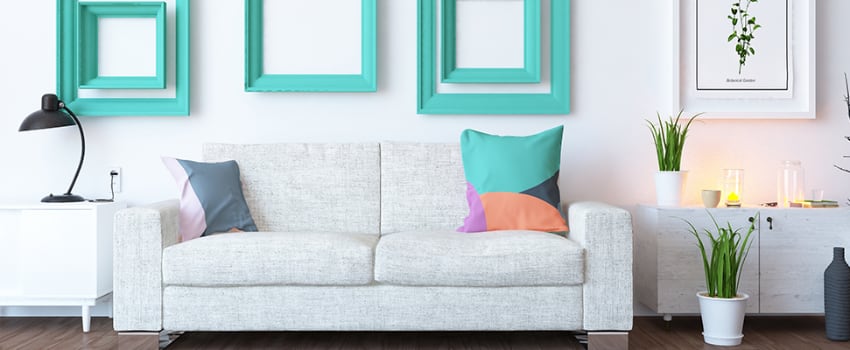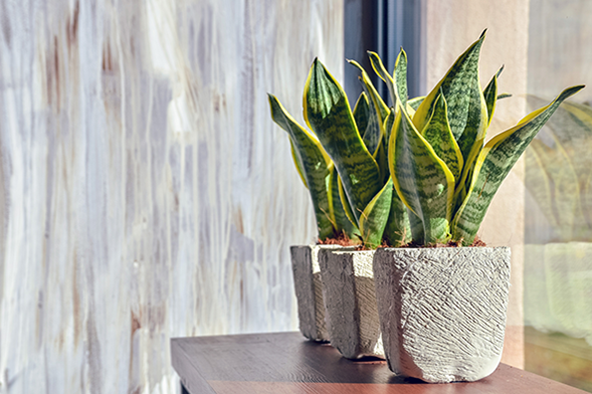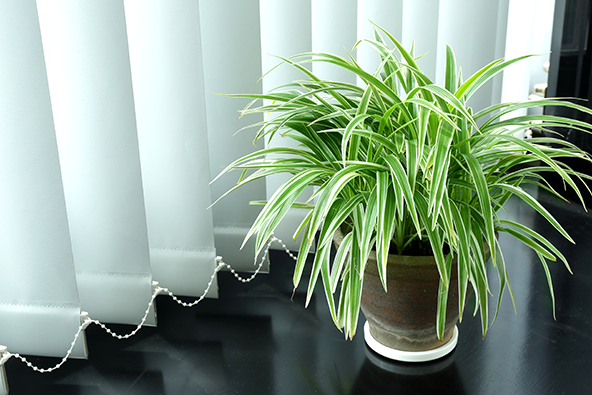Improve Your Mental & Physical Health by Simply Adding Houseplants

Plants are pretty important. It's not new news to say plants are vital to our survival. Let's exam: food, construction materials, medicine, oh and the most important of all, processing carbon dioxide and transforming it into oxygen. It's not a surprise then, recent studies conclude that indoor plants have a direct impact on our mental health & wellness.
There are a number of reasons why household plants might improve our happiness, and general consensus is they’re nicer to look at and smell. Wallpaper and carpet don’t really match living things and vibrant colors. A recent study supports this notion in its report that there is a direct correlation between the amount of care required to keep a plant healthy and the positive psychological effect it had in its caretaker. We learn from the research, those who share extended periods of time with plants tend to have better relationships with other people and accordingly experience increased levels of happiness.

Plants Help People, Help People
Additional research found that flowering plants provide elevated levels of happiness and therefore, keeping flowering plants around the house and in the office has the potential to significantly reduce stress levels. Science is science. Studies have shown that people who are around more plants are almost always more likely to help others, and often have more vibrant social relationships. It makes sense, people who care for nature are more likely to care for others, reaching out to their peers and creating shared bonds resulting from their mutual interests.
Plants Reduce Stress
Natural aesthetic beauty is known to have a calming effect, and having ornamental houseplants around the family home is an excellent way to lower high levels of stress and anxiety. As a result of the increased happiness derived from a space that has plants in it, the likelihood of suffering from stress-related depression is lessened as well. Study after study supports that by having houseplants, you improve your mental health by activating peace and open spaces to your brain.
Plants Help You Remember Your Honey To-Do List
Having ornamental houseplants in the home and office boosts memory retention and concentration. How? Natural environments, and the calming influence created by them, increases a person’s ability to fixate on the task at hand. Going outside with nature or being under the influence of plants inside your home can increase memory retention up to twenty percent, a recent University of Michigan research project showed (Sewach).
Are you convinced yet? Great. Here are two examples of ideas for great houseplants to have in your home:

Spider Plant
Spider plants are one of the most popular indoor botanicals, and your friends are going to like them because umm duh, it's name, spider plant They’re extremely easy to care for, and spider plants are especially good at absorbing mold or allergens from the air and can be put to good use in parts of the house that are prone to dampness: laundry room, downstairs, and bathrooms. Spider plants are fairly easy to care for, too. Provide them with bright, indirect light and they will flourish. Water it well but do not allow it to become too soggy, which can lead to root rot. In fact, spider plants prefer to dry out some between waterings.
Snake Plant
A study of CO2 conversion in plants by Harvard University found that the snake plant is one of the greatest oxygen-producing houseplants. For those interested, ficus and pothos are two other plants that made the list. One of the greatest snake plant health benefits is it can make small contribution to get rid of toxic air pollutants. Other than CO2, snake plant's can absorb benzene, formaldehyde, xylene, and toluene; all of which are cancer-causing pollutants. It's one of the most tolerant plants out there as it can withstand weeks of neglect without losing neither shape nor healthy, vibrant look. They can thrive in environments with limited light and water.
See any similarities with our two suggestions? If you have kids, we’re trying to help it easier to get them excited! Who gets Spider and who gets Snake?
